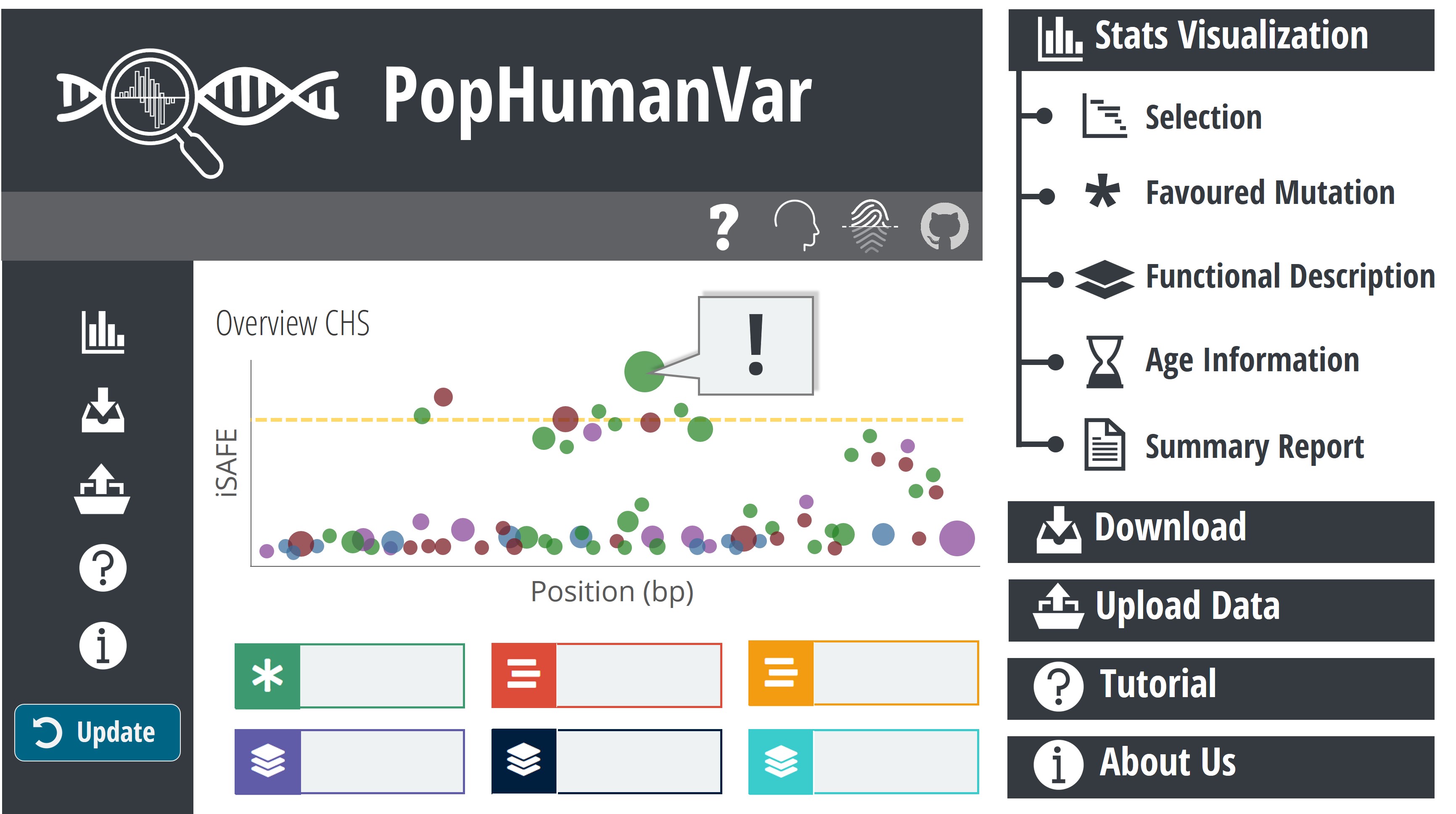PopHumanVar: reconstructing the evolutionary past of the human species
A UAB research team has developed PopHumanVar, an application that helps reconstructing the evolutionary past of the human species through the identification of specific genetic mutations that have allowed us to adapt to the environmental and cultural changes we have been subjected to throughout our evolutionary history. This interactive and open resource, the result of a study published in Nucleic Acid Research, is a compilation of functional and evolutionary data of millions of genetic variations present in the human genome.

Throughout our evolutionary history, we have been subjected to persistent adaptive challenges: changes in environmental conditions as we left Africa and expanded to the rest of the planet; changes in diet as we replaced the hunting of wild animals and fruit picking with the domestication of animals and farming; and changes in encountering new pathogens when forming Neolithic settlements. Our adaptive responses to these selective pressures have left their signature in our genomes, something we can now identify and analyse in order to reconstruct our past.
In 2019, the research group Bioinformatics of Genomics Diversity from Universitat Autònoma de Barcelona (UAB) identified 2859 regions of the human genome that could be relevant to the understanding of human evolution, 873 of which had not been described before. The group, directed by Sònia Casillas and Antonio Barbadilla, researchers at the Department of Genetics and Microbiology and at the Institute for Biotechnology and Biomedicine (IBB), thus provided a very valuable set of data to answer the question “What makes us human?”, and made it freely accessible through the PopHumanScan database.
The PopHumanScan catalogue was a first step in understanding which signatures had been left by selection on our genomes. Now, the research group has published the new interactive online resource PopHumanVar, which allows narrowing down these signatures, studying their origins and reconstructing the past of the human species. The new database makes it easier to explore and analyse the regions of the genome with evidence of having been the target of natural selection at a given point of our evolutionary history. This will help answering questions such as the functional causes of these mutations, when they occurred, and among which populations.
PopHumanVar collects, integrates and graphically represents functional and evolutionary genomic data from millions of genetic variants based on 2504 complete genomic sequences of 26 human populations from different parts of the world. Thanks to all the information collected, the database allows studying specific genomic regions with the aim of finding the mutations responsible for an adaptive event and discover when and where it first emerged. For example, PopHumanVar identifies the mutations responsible for well-known adaptive processes such as the EDAR gene in East Asian populations, involved in the development of hair follicles, teeth and sweat glands; the ACKR1 gene (DARC) in Africa, which plays a role in the inflammatory response and is associated with malaria resistance; and the one near the LCT gene in European populations, responsible for the digestion of lactose. Moreover, the application allows users to add and analyse their own data so that they can study adaptive processes in populations not included in the application.
The PopHumanVar application, which is the result of a study published by the researchers in the journal Nucleic Acid Research, represents a breakthrough in the study of human adaptation to different environments and big cultural changes during our expansion on Earth, and can be freely and easily accessed at: https://pophumanvar.uab.cat
The study that led to the creation of PopHumanVar is based on the international 1000 Genomes Project, the same one for which the UAB research group launched in 2018 PopHuman, the largest genome browser available on human genetic variation.
Original article: Aina Colomer-Vilaplana, Jesús Murga-Moreno, Aleix Canalda-Baltrons, Clara Inserte, Daniel Soto, Marta Coronado-Zamora, Antonio Barbadilla, Sònia Casillas, PopHumanVar: an interactive application for the functional characterization and prioritization of adaptive genomic variants in humans, Nucleic Acids Research, Volume 50, Issue D1, 7 January 2022, Pages D1069–D1076, https://doi.org/10.1093/nar/gkab925.